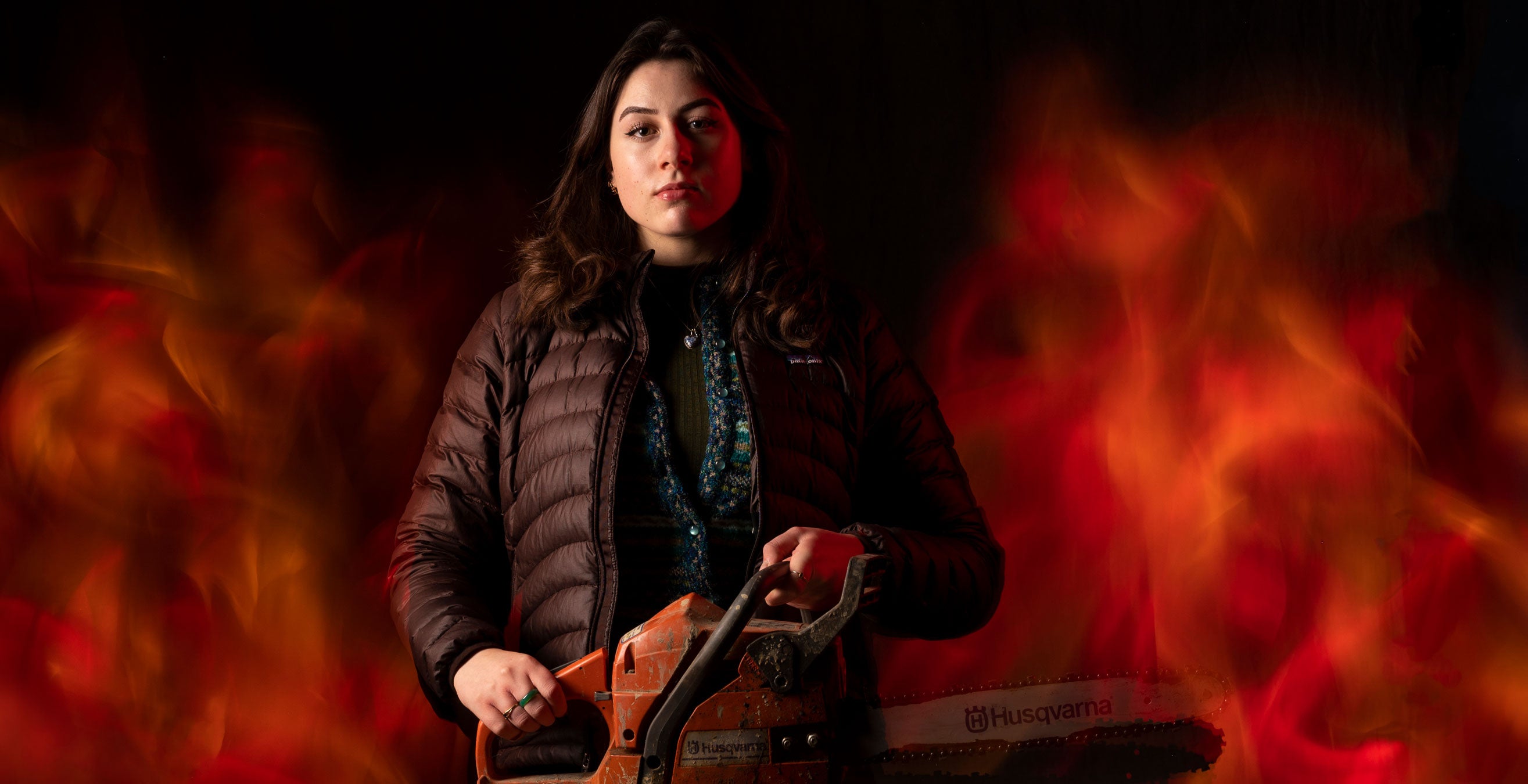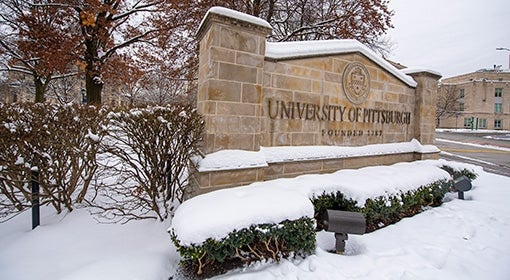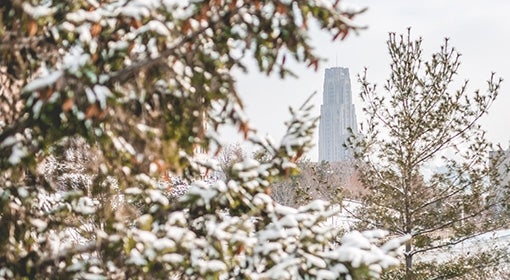
Helene Tracey has been wielding a 25-pound chainsaw for hours — she’s lost count how many — felling trees, one after another, after another. She’s in Allakaket, Alaska, racing to cut down spruce trees, some as tall as 50 feet high, before a nearby wildland fire reaches the 30-foot-wide shaded fuel break she was helping to build.
“We were working at ‘fire pace,’” recalls Tracey of that day last summer. “It was go, go, go, one tree after another, nonstop.”
She and her crew mates — all young women — were on a mission to protect the tiny Allakaket Village, a fishing community of native groups on the Koyukuk River, just north of the Arctic Circle. The crew had been at it since breakfast, and they would continue until they were finished.
Tracey, a Pitt junior, spent last summer learning to fight fires in Alaska as part of a newly launched, all-women conservation corps crew hosted by the National Park Service (NPS) in conjunction with the Student Conservation Association. The program is part of a new strategy to increase diversity in wildland fire fighting. Women currently make up less than 20% of the country’s wildland firefighting force.
“If they can see it, they can be it,” says Missy Forder, a national fire planner for the NPS and one of only eight women in the bureau’s leadership. “Disaster seasons are increasing,” she notes. Last summer was a record-breaking season that saw more than 7 million acres burned in wildland fires around the country — and half of those were in Alaska. The United States simply needs more people trained to fight fire, according to Forder. Preparing women for the job will aid efforts to tackle the complex and mounting problems posed by climate change.
Tracey, who grew up in Pittsburgh, never quite saw herself as the camping type before spending 14 weeks last summer in a tent. She’s always been invested in the planet’s welfare and future, however. On the Pittsburgh campus, she double majors in political science and environmental science and hopes to attend either law school or graduate school for environmental science after graduation.
Her time in Alaska gave her a fresh perspective on her education, she says. “All of my classes discuss environmental issues and environmental degradation, but it's different to actually see it in person. It makes it much more real.”
The work she and her six fellow trainees took on in Alaska was real, too. They began south of Anchorage at Chugach State Park with wilderness, work safety and trail-building training. In Katmai National Park and Preserve, the group felled their first trees, earned their chainsaw certifications and prepared for their Work Capacity Test, also known as the “pack test,” which ensures that each fire fighter can carry a 45-pound pack for three miles in under 45 minutes. And, in Denali National Park, they went to work cutting back trees, grasses and brush to reduce the fuel that could feed future fires.
It was extremely hard work, but Tracey says the entire summer was “very rewarding” — especially the work she and her crew did to safeguard the Allakaket fishing village and its citizens.
Though her long-term plans involve city living, in the short term, there’s fire in Tracey’s future. She’s applied to wildland fire jobs for next summer and is hoping she’ll head back to Alaska to continue the work she started last year. The chance to help make a difference in the efforts to stem the effects of climate change is proving too important to pass up.
“I like learning new things,” says Tracey, “and I like a challenge.”
This story was published on January 26, 2023. It is part of Pitt Magazine's Winter '23 issue.




